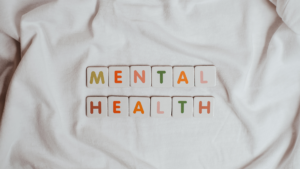While food alone cannot heal someone from trauma, it plays an important role. Nourishment extends beyond the physical and encompasses the holistic well-being of people who have experienced trauma. The role of various types of nourishment – physical, emotional, mental, social and spiritual – involves a collaborative and individualised approach to empower survivors of domestic, family, and sexual violence to embark on a path of recovery and empowerment.
Physical Nourishment.
Ensuring access to nutritious food, regular meals, and adequate rest. Physical well-being forms the foundation for overall health and recovery. And given our knowledge around the gut-brain connection, it’s never been more important. Our brains have a direct effect on our intestines, and vice versa. In a Harvard Health Publishing article, the author described how psychosocial factors (stress, depression, anxiety) influence the actual physiology of the gut (pain, GI disorders).
Chronic stress is a catabolic process; it breaks down healthy tissues. For someone working through trauma, eating regular meals often falls by the wayside, but when you aren’t fuelling your body regularly, it puts further stress on your body. A vicious cycle of irregular and poor meals disrupts blood sugar levels, the brain releases the stress hormone cortisol, which in turns makes it harder to sleep. Sleep Expert Shelby Harris PsyD says sleep deprivation on top of high levels of cortisol often leads to increased fatigue, depression and anxiety.
Emotional Nourishment.
Emotional nourishment refers to the process of nurturing and supporting one’s emotional well-being. It involves engaging in activities, relationships, and practices that contribute positively to one’s emotional health, fostering resilience, and promoting a sense of fulfillment and contentment. Emotional nourishment is crucial for overall healing.
Creating a supportive and empathetic environment where survivors of domestic, family, and sexual violence feel emotionally validated is one form. This involves acknowledging their experiences, expressing compassion, and fostering a sense of safety.
Key elements of emotional nourishment include positive relationships, self-expression, establishing boundaries, adopting healthy coping mechanisms (e.g. meditation) and self-care.
Mental Nourishment.
Encouraging cognitive well-being through access to mental health resources, counselling, and therapy. Supporting survivors in developing coping mechanisms and resilience is crucial for mental nourishment. It involves engaging in activities that stimulate the mind, promote mental clarity, and contribute to overall mental health. Mental nourishment is essential for cognitive functioning, emotional resilience, and maintaining a positive mental state.
Social Nourishment.
Social nourishment refers to the interpersonal and communal aspects of well-being that contribute to a person’s social health. It involves engaging in positive and meaningful interactions with others, building and maintaining social connections, and fostering a sense of belonging within a community. Social nourishment is essential for emotional support, personal development, and overall mental health.
Spiritual Nourishment.
Recognising and respecting individual beliefs and values. Spiritual nourishment involves providing space for introspection, finding meaning, and fostering a sense of connection beyond the immediate trauma.
There are many different avenues to each of the above nourishment areas, and you may need to try different ones to find what is going to work best for you. Is it Samba classes, Sudoku, gardening, singing, Tai Chi, support groups, running, writing, board games with friends?
Adamas Nexus is a post-crisis peer-based support group for women to empower and assist each other via shared experience, understanding and connection through the period after the domestic, family, and sexual violence has occurred. The support group provides a confidential and safe environment for survivors to meet to provide community, connection, and corroboration in an online forum.
Have you signed up to the Adamas Nexus Newsletter? Click HERE to sign up now.
Find Your Tribe So You Can Thrive – Tedx Talk with Kristine Hewett
Many people have had a traumatic incident in their lives, and we now all have the collective trauma of COVID. Why is there an expectation that we need to ‘get over it’ or ‘move on from it’? Lived experiences may well have happened in our past, but they have ongoing impact on our now and our future. Kristine wants to help people to do more than survive and to in fact thrive by finding their people or tribe.




